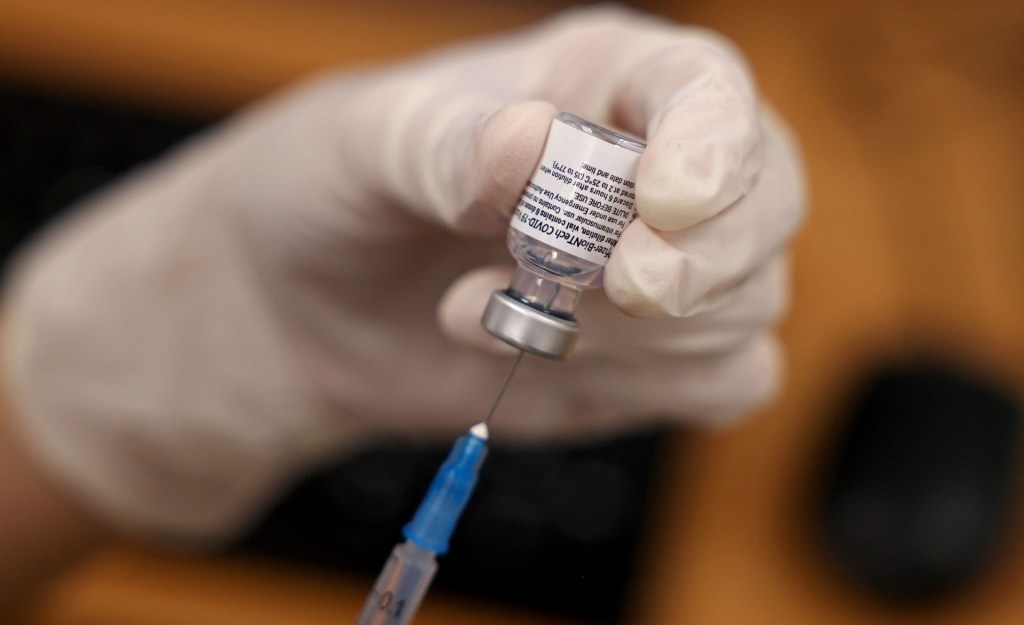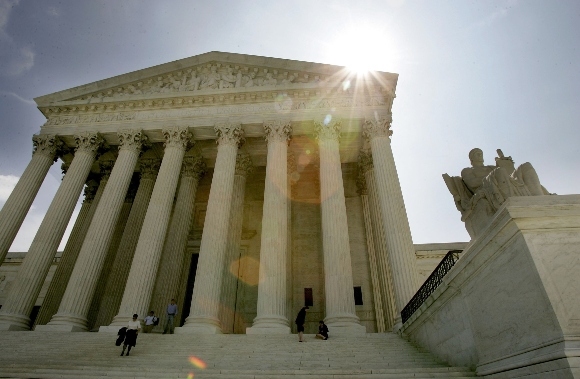Overnight Health Care: Biden launches probes into school mask mandate bans
Welcome to Monday’s Overnight Health Care, where we’re following the latest moves on policy and news affecting your health. Subscribe here: digital-staging.thehill.com/newsletter-signup.
A Las Vegas feed store is requiring customers seeking Ivermectin to show a picture of their horse before purchasing the drug. The shop is enduring a shortage of the anti-parasite drug as people have decided to take it as a COVID-19 treatment — despite strong warnings from basically every professional health organization, states, the federal government and the drug’s manufacturer.
Meanwhile, the Biden administration is ramping up its war against GOP governors who ban schools from requiring masks. Through five civil rights investigations, the Department of Education is examining whether the statewide bans discriminate against students with disabilities.
For The Hill, we’re Peter Sullivan (psullivan@digital-staging.thehill.com), Nathaniel Weixel (nweixel@digital-staging.thehill.com) and Justine Coleman (jcoleman@digital-staging.thehill.com). Write to us with tips and feedback, and follow us on Twitter: @PeterSullivan4, @NateWeixel and @JustineColeman8.
Let’s get started.
Five statewide bans on school mask mandates under federal investigation

The Department of Education announced on Monday that it has opened civil rights investigations into five statewide bans on mask mandates to determine whether they discriminate against students with disabilities.
School officials in Iowa, Oklahoma, South Carolina, Tennessee and Utah received letters from the department’s Office for Civil Rights (OCR) that detailed how bans on universal mask requirements could prevent schools from implementing policies that protect students from COVID-19, particularly those with underlying medical conditions “related to their disability.”
The probes will examine whether the bans violate parts of the Rehabilitation Act of 1973 and the Americans with Disabilities Act that forbid discrimination based on a person’s disabilities and that give all students the right to free public schooling. The OCR said it will collect data from the five education departments “over the coming weeks.”
What they’re saying: “It’s simply unacceptable that state leaders are putting politics over the health and education of the students they took an oath to serve,” Education Secretary Cardona said in a statement.
But: The department did not launch investigations into every state with a ban on school mask requirements, as Arizona, Arkansas, Florida and Texas are not yet enforcing their policies due to court battles or “other state actions.”
“However, the Department will continue to closely monitor those states and is prepared to take action if state leaders prevent local schools or districts from implementing universal indoor masking or if the current court decisions were to be reversed,” the office said in a release.
ANXIETY RUNNING HIGH AS COVID-19 THREATENS BACK-TO-SCHOOL
Students across the U.S. are starting another school year under a cloud of uncertainty as the delta strain of the coronavirus rips through the country, threatening to disrupt plans for a second consecutive academic year.
The pandemic’s unpredictability has sparked high anxiety among children and teachers alike as they attempt to return to in-person school for the first time since March 2020, with lingering fears that COVID-19 could jeopardize educational routines again.
The back-to-school season has left children and families with mixed feelings. Many are excited to return to in-person class after months of virtual learning, while some adults are keeping a wary eye on rising pediatric cases and hospitalizations.
“Routines are so important for children, and we are all living in a state where routines are impossible to predict,” said Sheila Desai, the director of educational practice at the National Association of School Psychologists. “So of course with uncertainty comes anxiety.”
CDC panel says more evidence needed for boosters

A Centers for Disease Control and Prevention (CDC) advisory panel on Monday indicated it could take a substantially different approach to booster doses of COVID-19 vaccines than the one proposed by the Biden administration.
Members of the CDC’s Advisory Committee on Immunization Practices said the evidence on boosters is not clear and indicated it would likely consider a risk-based approach that would prioritize residents of long-term care facilities and health workers, rather than all eligible Americans at once.
COVID-19 vaccines continue to maintain high protection against severe disease, hospitalization and death. While some studies have found some waning of effectiveness against infection, members of the panel said the evidence is not clear enough to justify a booster recommendation.
Significance: The panel didn’t vote on Monday, but it was clear that if one had been held, an endorsement of a booster recommendation wouldn’t be a slam dunk. Pfizer and BioNTech are asking federal regulators to approve a third dose as a booster shot for all eligible Americans. A representative from Pfizer said studies on the need for boosters are ongoing, and initial data might not be available until late September or early October.
Timing: But the Biden administration has already said boosters will be available beginning the week of Sept. 20. Scientists and public health experts have sharply criticized the announcement, accusing the administration of pre-empting the evidence.
Vaccine approval: The panel voted 14-0 to recommend the vaccine for people ages 16 and older. The move was essentially a formality, as it comes a week after the FDA granted full approval.
The panel had previously voted in favor of an interim recommendation, before the vaccine was fully approved.
ASTRAZENECA REQUIRES US EMPLOYEES TO BE VACCINATED
AstraZeneca is requiring all of its U.S. employees to get vaccinated against the coronavirus if they plan on returning to the workplace or need to interact with customers.
“At AstraZeneca, we are driven by science and every day we push the boundaries to deliver life-changing medicines. To safeguard the health and wellbeing of our employees and communities, we must follow the science and as part of our return to workplace approach, we will require all US-based AstraZeneca and Alexion employees who are onsite or visiting our customers to be vaccinated against COVID-19,” a spokesperson for the British-Swedish pharmaceutical company said in a statement to The Hill on Monday.
The spokesperson said the decision was made about two weeks ago and employees were subsequently notified.
Abortion providers ask SCOTUS to block Texas ‘fetal heartbeat’ law

A group of abortion providers asked the Supreme Court on Monday to block a Texas law that would ban virtually all abortions after a fetal heartbeat is detected.
The law, which authorizes citizens to sue those who perform or “aid” abortions after the roughly six-week ban is triggered, is set to take effect this week.
“Nearly fifty years ago, this Court held that Texas could not ban abortion prior to viability,” the group wrote in a court brief, referring to the 1973 landmark decision in Roe v. Wade. “Yet, absent intervention from this Court, in less than two days, on Wednesday, September 1, Texas will do precisely that.”
The request was filed to Justice Samuel Alito, who handles emergency matters arising from Texas.
Bigger picture, challenges to Roe v. Wade: The Texas measure is among a number of abortion restrictions that state legislatures have passed in recent years that pose a direct challenge to Roe v. Wade, which prohibits states from banning abortion before fetal viability, typically around 24 weeks.
WHAT WE’RE READING
- Demand surges for deworming drug for Covid, despite scant evidence it works (The New York Times)
- Inside Pfizer’s labs, ‘variant hunters’ race to stay ahead of the pandemic’s next twist (Stat News)
- Concert venues are banking on proof of vaccines or negative tests to woo back fans (Kaiser Health News)
- The vaccine wave kept health care as profitable as ever (Axios)
STATE BY STATE
- Butler County judge orders West Chester Hospital to treat COVID-19 patient with ivermectin, despite CDC warnings (Ohio Capital Journal and The Enquirer)
- The state’s sending thousands of health care workers to Texas hospitals amid a new COVID-19 surge. Will it be enough? (The Texas Tribune)
- Alaskans wait for vital records as state health department gets back online after cyberattack (Alaska Public Media)
OP-EDS IN THE HILL
Copyright 2024 Nexstar Media Inc. All rights reserved. This material may not be published, broadcast, rewritten, or redistributed..

















